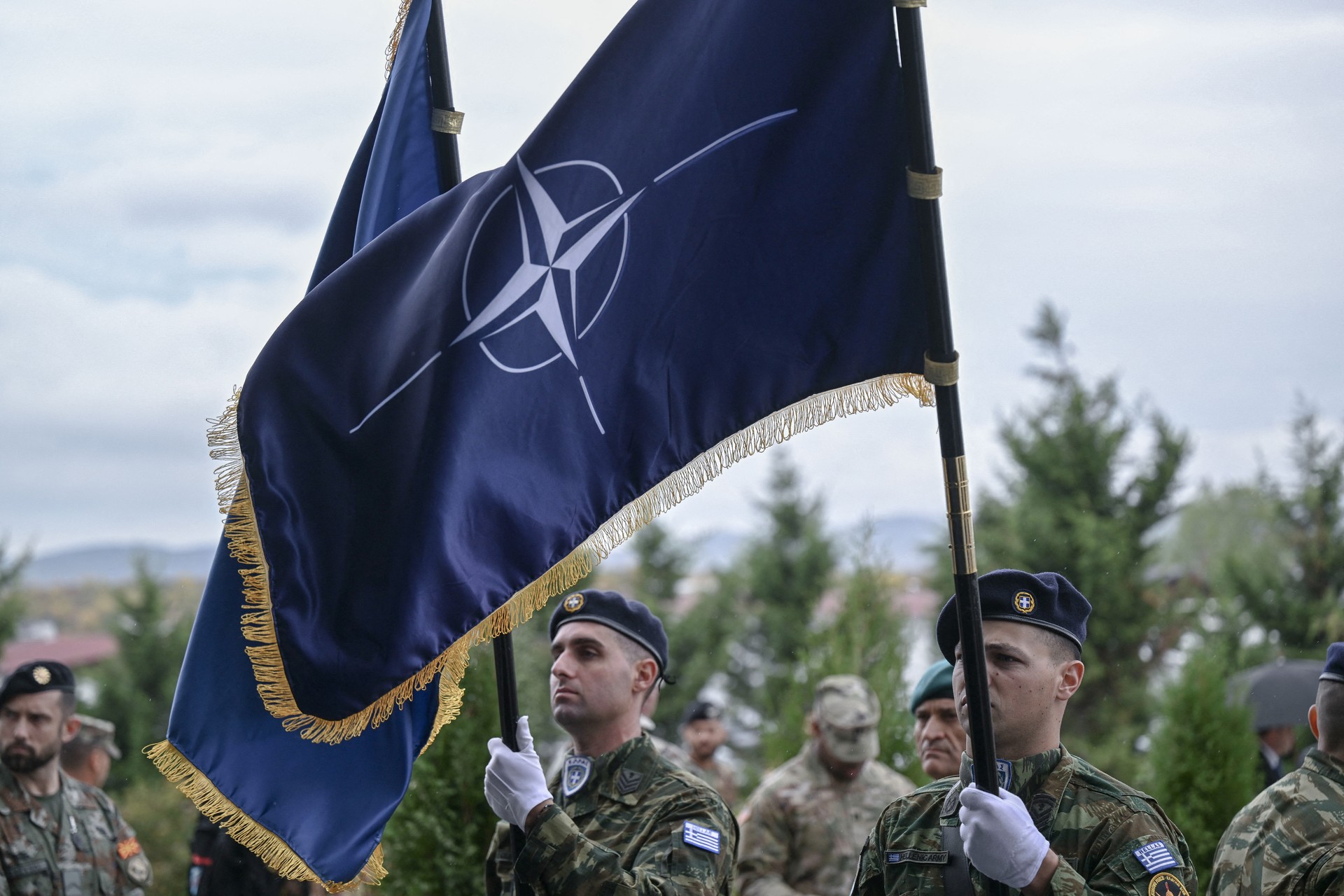
Western security agencies and politicians are increasingly concerned that a potential U.S.-Russia agreement on Ukraine could lead to the withdrawal of U.S. troops from much of Europe, German newspaper Bild reported.
An unnamed Eastern European security official told the German newspaper, "According to our information, it's about (Russian President Vladimir) Putin's 2021 demands, i.e. a withdrawal of U.S. troops from all NATO states that joined the alliance after 1990."
The report also highlights that Italy is preparing for a possible withdrawal of U.S. troops from Kosovo’s NATO mission, KFOR. As tensions between Serbia and Kosovo escalate, this development in the long-standing frozen conflict has raised concerns not only in the Balkans but also across Europe.
First, it’s important to note that European NATO allies would be left isolated in the Balkans, particularly against Serbia's President Aleksandar Vucic and his powerful army. Moreover, with Serbia's close relations with Russia, Moscow's influence in the region will likely expand.
KFOR, a NATO mission established in 1999 to ensure security in Kosovo, holds strategic importance for the U.S. As one of the primary contributors to KFOR, the U.S. plays a critical role in monitoring the security situation in the region. U.S. involvement is vital not only for Kosovo’s stability but also for preventing Russia’s influence in the Western Balkans.
The Balkans has long been a geopolitical bridge between Europe and Asia, making the U.S. and NATO’s presence in the region crucial for both regional and European security. A U.S. withdrawal could increase instability in the region and create a security vacuum in Europe.
Russia, which does not recognize Kosovo’s independence, has worked to curb Western influence in the region. A U.S. withdrawal from KFOR could provide Russia more room to expand its influence in the Balkans.
Furthermore, the recent rapprochement between U.S. President Donald Trump and Russian President Vladimir Putin, focused on the Ukraine conflict and peace talks, could align with U.S. efforts to reduce its military presence in Europe. Trump’s proposed budget cuts may also contribute to this shift.
Thus, such a withdrawal could further Russia’s strategy of bolstering its influence in the Balkans.
If the U.S. withdraws from KFOR and other NATO forces in Europe, it could weaken not only the security balance in the region but also the West’s strategic position against Russia. NATO’s presence in the region has served as a barrier to Russian influence. A U.S. move to reduce its presence could open the door for Russia to take a more active role in the region.

On the other hand, a U.S. withdrawal from KFOR could present both strategic and political opportunities for Serbia.
Serbia, with its historical, cultural, and military ties to Russia, has long prioritized Russian support in countering the West’s backing of Kosovo.
A reduction in U.S. and NATO military presence in Kosovo could facilitate closer cooperation between Serbia and Russia. This shift could lead to an increase in Russia’s influence in the Western Balkans, and Serbia, with Russian backing, may take a harder stance on Kosovo.
While Serbia maintains tense relations with NATO, it also has military cooperation agreements with the alliance. However, Serbia’s NATO membership or integration with the West remains obstructed by the Kosovo issue. A reduced U.S. and NATO presence could strengthen Serbia’s anti-NATO stance and further deepen its ties with Russia.
Meanwhile, a NATO official speaking to local news outlets in Kosovo confirmed that the U.S. continues to play a key role in KFOR. The official emphasized that U.S. commitment to NATO and KFOR, including its military presence in Europe, remains strong, and that investing in collective security is an obligation for allies.
At this time, the Pentagon has neither confirmed nor denied Bild's report, and the issue remains uncertain.